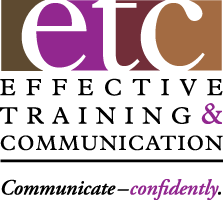Marketing research consistently supports the value of referrals. New prospects acquired through referrals from your happy customers generally make purchasing decisions faster, are nearly three times more likely to become your repeat customers, require less investment to make the sale and are twice as likely to make referrals on their own.
So, it sounds like asking for referrals is an obvious ‘no-brainer’ sales strategy, doesn’t it. Actually, there are two opposing philosophies surrounding referrals. Some sales experts say don’t ask for them – if it’s going to happen, it’s going to happen organically and automatically. Asking for referrals can be clumsy and can easily make you look selfish or greedy … or tacky.
But others, like me, feel ‘Why not. What have you got to lose?’ If you’ve done a good job for a customer, there’s no harm in saying ‘Can you think of other people that I can help solve a similar problem for?’ Whether that other person is an internal referral in a different division or department within the same organization or an external referral to a colleague in a different organization … I don’t think there’s any downside to it.
If you’re still a little uncomfortable with this ‘ask’, you can always begin with a simpler request for a testimonial on LinkedIn. When your happy customer complies, you can always indicate that you’re so impressed with what they said that would they be comfortable referring you …. ?
Yes, ideally, people would automatically make referrals. If someone was looking for a website developer and asked me for a referral, I’d enthusiastically respond with ‘Just call media schmedia. They designed my site and this eLetter. I’m very happy with their work and my investment.’ That’s a valuable but pretty typical ‘Level I’ referral.
It’s so much more powerful when I initiate a ‘Level II’ referral, when I’m so impressed with the work media schmedia has done for me that I call some of my friends and say, ‘You really ought to talk to them. These guys helped me and I’m confident that they can help you. Would you like an introduction?’ Here, a happy customer becomes an enthusiastic advocate and goes out of his or her way to give a referral.
People who are afraid to hear ‘no’ need to ask themselves ‘What’s the worst thing that could happen if they do say ‘no’? No big deal – you move on to the next opportunity. If that does happen, you can always ask ‘Would you mind telling me why?’ because maybe there’s some issue you need to hear about and you opened that can of worms by asking for the referral. You may not like what you hear but you always need to hear what’s there. There’s no harm no matter what the response is, whether they agree or don’t agree and tell you why.
So, take your new business development to the next level by embracing Referral Power every time you turn a happy customer into an enthusiastic advocate or even a raving fan.
